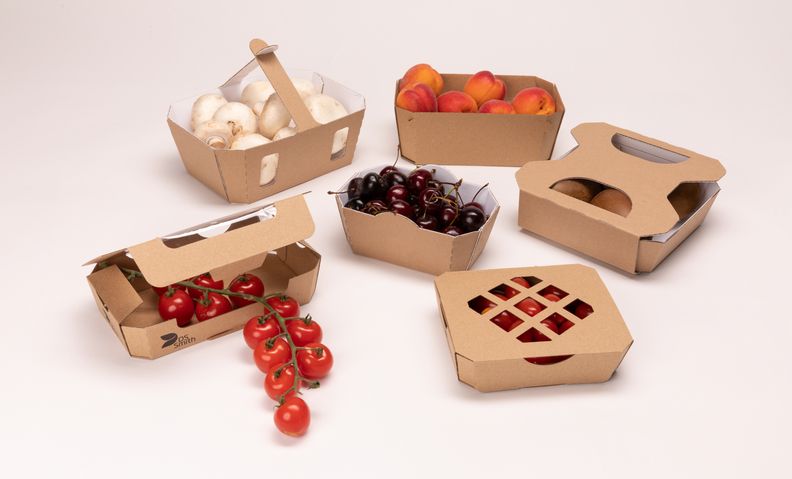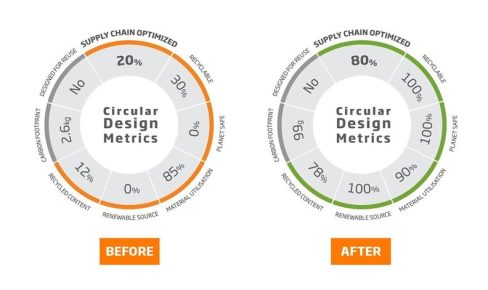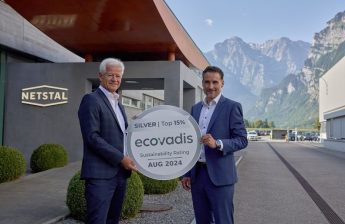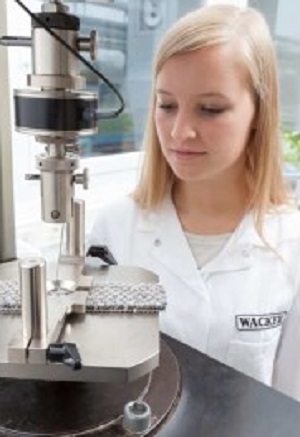The manufacturer of paper packaging said its plastic replacement track record ‘marks a key sustainability milestone’, adding that ‘demand for plastic replacement continues to grow’.
As of May 2024, DS Smith has replaced over 1.2 billion pieces of plastic with fibre-based alternatives in twenty-seven countries across Europe and North America.
To achieves this, the company set up Design Principles and Circular Design Metrics in partnership with the Ellen MacArthur Foundation. Each of DS Smith’s almost 800 designers have been trained in Circular Design Principles and are able to assess performance against areas such as recycled content and recyclability, indicative estimated CO2 emissions, levels of excess waste and supply chain parameters in partnership with customers.
Taking changing from plastic to fibre-based packaging for cherry tomatoes as an example, DS Smith calculates a carbon footprint improvement from 2.6 kg to 99 g, a recyclability rate from 30% to 100%, and a recycled content rate from 12% to 78%.
Whilst plastic pollution has heightened consumers’ concerns with the material’s sustainability credentials, the plastics industry has been calling for ‘fact-based decision-making’. Associations including the Germany-based IK cite independent studies showing that, in many cases, replacing plastic with alternatives results in worse greenhouse gas emissions, for example.










